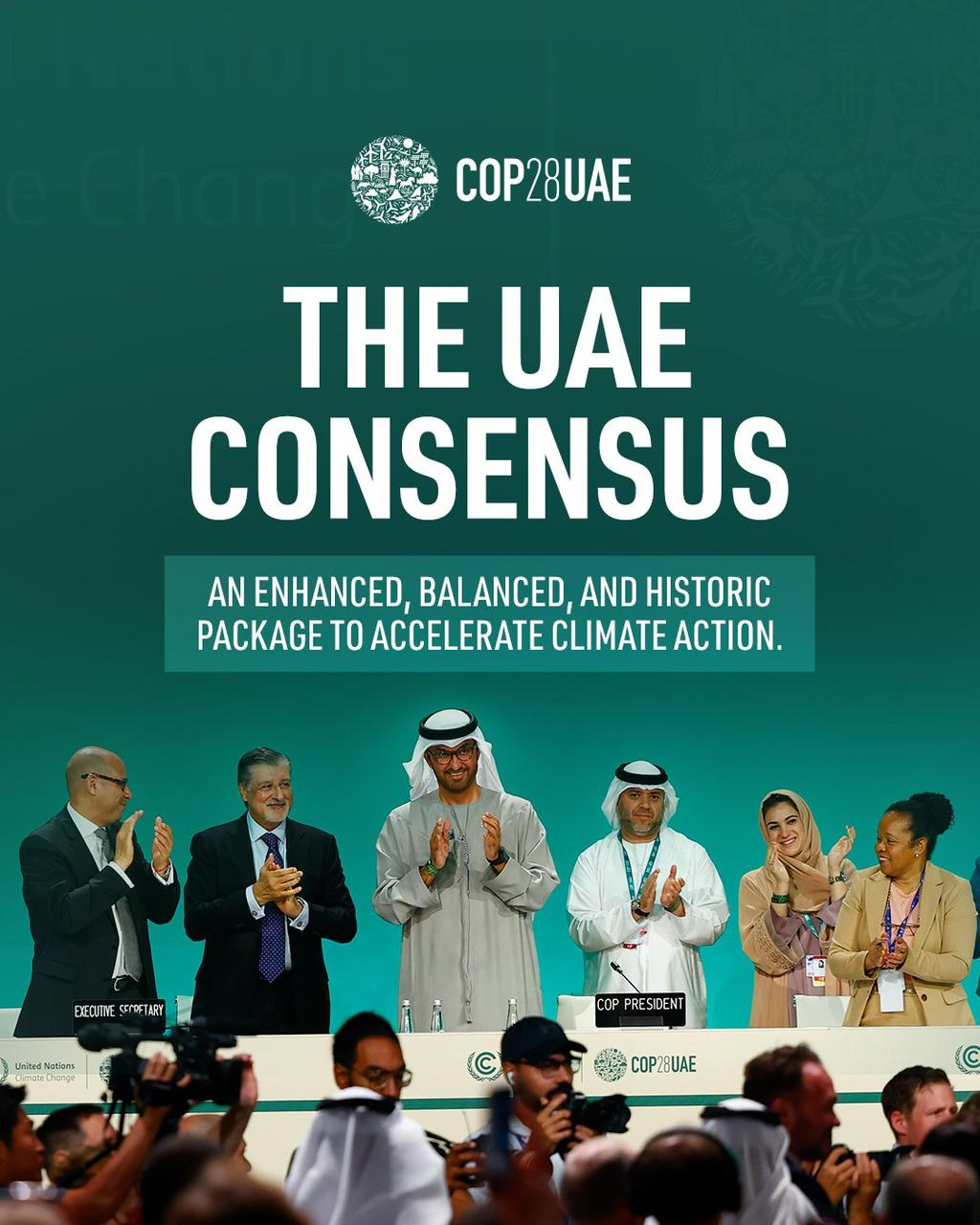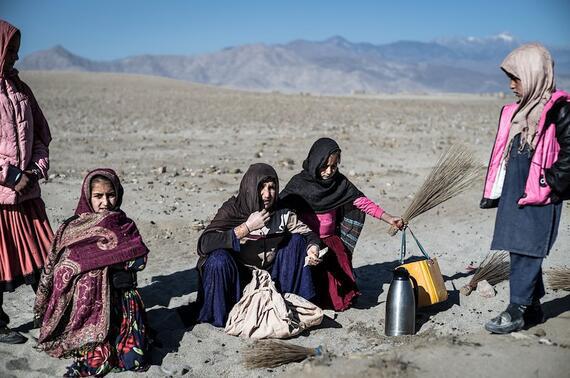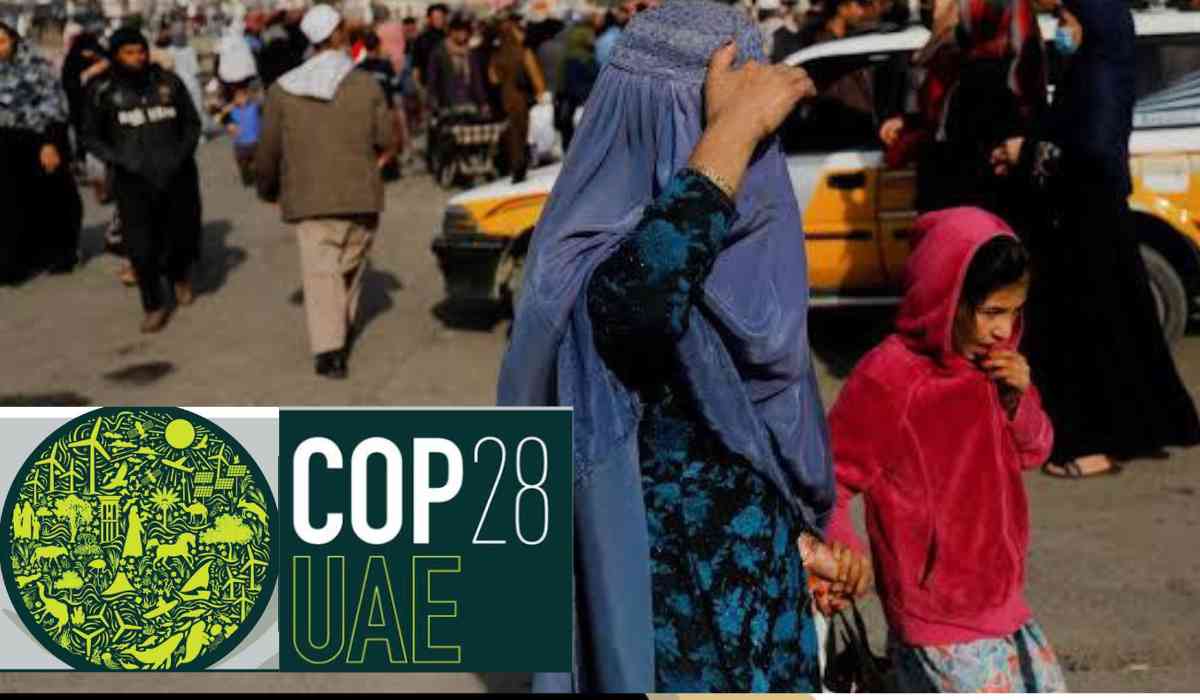Afghanistan finds itself sidelined from United Nations climate negotiations for the third consecutive year, raising serious humanitarian concerns. The nation at home has already been hit with droughts and floods, and remains absent from crucial discussions on the global stage.
Tragedy struck Afghanistan earlier this year, as heavy rains triggered devastating floods resulting in the loss of dozens of lives. This indicates that Afghanistan, one of the world's most vulnerable countries to climate change, is facing a devastating situation, thus its exclusion from international climate talks is a concern.
Since the Taliban assumed control of Kabul in 2021, Afghanistan has been excluded from U.N. talks. No foreign government has officially recognized the Taliban's leadership, and the group doesn’t have a seat at the U.N. General Assembly, further deepening the diplomatic isolation faced by Afghanistan. Following this Afghanistan’s absence from the COP28 climate summit in Dubai persists.

Photo: X
As per Foreign officials, Taliban had been isolated at the global stage for its policies restricting women particularly barring girls and women from high school and universities.
Humanitarian and international officials, as reported by Reuters, reveal that efforts were made this year to facilitate the participation of Afghan representatives. This initiative aligned with broader discussions among foreign governments and multilateral institutions on how to engage with the Taliban.
Qiyamud Din Ikram of the nonprofit Refugees International said, Though ultimately unsuccessful, "there's hope that maybe next year you might see engagement with Afghanistan in some capacity again,"
IMPACT ON WOMEN
The COP Bureau of the U.N. Framework Convention on Climate Change (UNFCCC), responsible for approving countries for annual summits, decided in a November 2022 meeting to defer a decision on Afghanistan's representation at future conferences.
The Taliban administration expressed regret over its exclusion from COP28, with Rouhullah Amin, head of climate adaptation at NEPA, stating that efforts were made but no positive response was received.
A senior U.N. source mentioned recent efforts by international officials to include Afghan representatives at COP28, but the UNFCCC did not comment on Afghanistan's absence.
In rural Afghanistan, women face challenges fetching water amid drought, contributing to severe food insecurity for about 20 million Afghans. Food aid decline, influenced by reduced humanitarian funding, worsens the situation.
Nonprofits, like Women for Women International, argue against isolationist policies, emphasising the importance of engaging with the de facto authorities in Afghanistan.
While the Taliban claims to respect women's rights per their interpretation of Islamic law, some argue that disengagement is appropriate until the Taliban eases restrictions. Heather Barr of Human Rights Watch notes that international acceptance of the Taliban can undermine women's rights perceptions globally.

Photo: OCHA
FROZEN FINANCES
The Taliban's assumption of control over government institutions has resulted in Afghanistan losing access to vital U.N. climate funds, including the Green Climate Fund (GCF).
Stephanie Speck, a spokesperson for the GCF, explained that the fund lacks a recognized focal point in Afghanistan following the COP Bureau's decision in 2022. Further, an approved $18 million sustainable energy project is now on hold for a comprehensive review of current and emerging risks.
Several other proposals, with a combined value exceeding $750 million, aimed at initiatives like improving irrigation and deploying rooftop solar panels in Kabul, have also been postponed. This information is derived from a NEPA document seen by Reuters.
RENEWED DIALOGUE
Questioning the isolationist stance towards the Taliban, a recent report commissioned by the U.N. Security Council deemed the existing international engagement ineffective. The report, released last month, suggested an expansion of global cooperation on climate adaptation and response.
Paul Klouman Bekken, Norway's charge d'affaires for Afghanistan, proposed that discussions with the Taliban on climate change adaptation could serve as a confidence-building measure, emphasizing the need for a more proactive approach.
Roza Otunbayeva, heading the U.N. mission in Afghanistan, labeled the current situation as "unsustainable." Urging creative thinking, she emphasized the importance of avoiding a repetition of Afghanistan's absence at COP29 with yet another statement.
(Inputs from other agencies)
©️ Copyright 2023. All Rights Reserved Powered by Vygr Media.
























